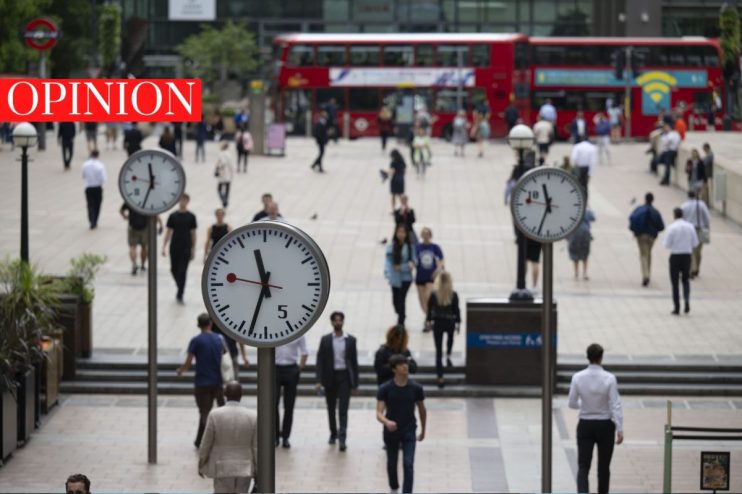Even millennials are becoming victims of ageism as Gen Z take over the office

Younger workers are a safety blanket against the future for employers, but it can’t come at the expense of valuing an experienced workforce, writes Eliza Filby
What does the idea of ageism conjure up for you? Discrimination against pensioners? If so, it’s time to think again. “When people think of the victims of ageism in the workplace they tend to think of the over 50s,” says Michael O’Reilly, head of the Age Diversity Network, adding “people are surprised when I tell them that it actually starts at 40.”
Michael, in his sixties, set up the Network after suffering from ageism and he now helps individuals back into work and companies expand their thinking when it comes to this issue. His observation is backed up by Professor Lynda Gratton who has stated that ageism begins at 40 for women and 45 for men. The gender gap may not surprise you, but the age may be a wake up call for Millennials; long seen as youthful disruptors they’re now in danger of being victims of ageism.
I speak to companies all over the world about the multi-generational workforce and predominantly that means talking to a room of high-level over 50s about the under 25s. This fascination with youth is understandable; crudely speaking, young people are cheap digital natives, ready made for the future. The corporate obsession with youth is also pragmatic; according to PwC 40 per cent of global CEOs fear their business won’t be economically viable in ten years’ time thanks to the looming waves of political, economic and technological disruption.
Perhaps young workers represent a comfort blanket. And while there’s increasing political focus on supporting the over 50s at work, the truth is that scrapping pension allowances or even pushing corporate returnerships or mid-life MOTs, are all responses to a relatively sudden problem. They represent an approach that underestimates how companies need to respond to an ageing workforce over the next twenty years.
It has become a common trope that ageism is the last acceptable form of prejudice (“You’re on mute!” shout the young to the old) but the culture wars are playing a part here, too. Many older men, in particular, feel professionally silent, unsure of acceptable workplace etiquette. Workplace wellbeing programmes are better versed in dealing with burnout rather than high blood pressure.
Even the diversity, equity and inclusion mantra of to “bring your whole self to work” is felt by many to be conditioned by youth priorities. As one man in his forties confided in me, “if I brought even 10 per cent of my whole self to work they’d fire me.” Businesses can’t afford to ignore the fact that in a changing cultural landscape many experienced workers feel invisible, underinvested and misunderstood.
Amid all the corporate buzz about Gen Z, companies would also do well to look to their millennials, who do not have the same amount of savings or property wealth to retire as early as previous generations; and who need support now with artificial intelligence (AI) skills, career development, even physical health and caring responsibilities.
The good news is that some are suggesting that the integration of AI will actually benefit older, more experienced employees. As AI relies on less digital skills, what is needed to operate it is more human critical thinking in order to work in alliance with rather than in subservience to machine learning. In a digital age, human skills are reaching a premium too; stuff that older workers tend to be better at.
As tech disrupts the once-fixed assumption of age determining your place in the workforce, the future is one where age is more fluid than ever. This is one of the reasons why I now run courses for Gen Z’ers helping them empathise with and work alongside their more experienced colleagues, of all generations, because that empathy has to happen both ways and that is predominately how all employees’ career and network will grow. Age diversity is vital for future-proofing a business, but so too is supporting employees at all ages and stages of life. After all, the one thing that unites us is that we all grow old eventually.